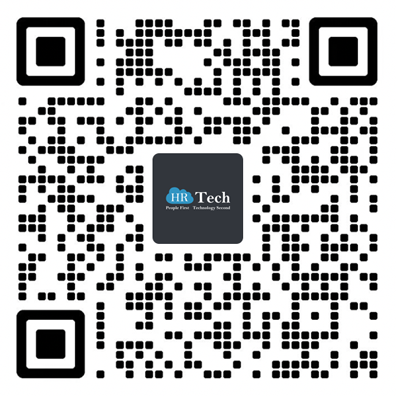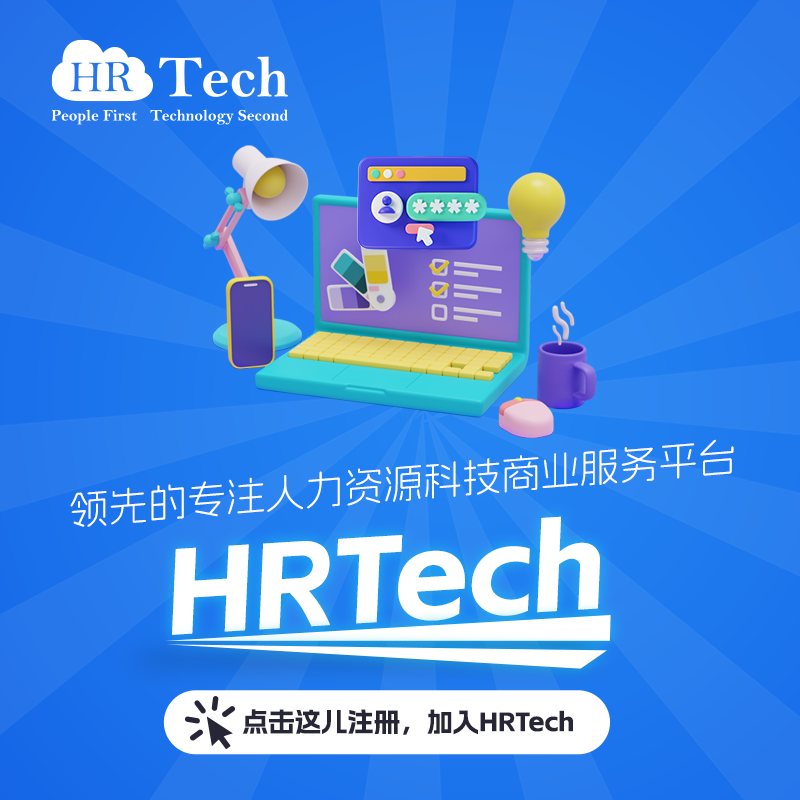硅谷
关于企业服务AI,Salesforce Einstein教会了我们什么|Xtecher硅谷
编译|Xtecher GeneHe、硅谷加先生 来源|VentureBeat 网址|www.xtecher.com 微信公众号ID|Xtecher
每一次交易都需要消费者,每一个消费者都需要被关心。这就是企业服务AI-CRM至关重要的原因。但不完整的数据和沉重的工作流程让大多数公司的销售和市场运作差强人意。
同时,除了Google和Facebook之外的公司也没有大笔的预算建立AI团队完全替代人力成本。尽管个别公司拥有合适的技术人才,但仍然缺少开发基于神经网络模型的系统架构的专家。
企业AI大有可为
人工智能云计算机不仅仅是泡沫一般的构想。如今,大多数最强大的计算机和科技公司正在大步前进以调整市场方向。其根源在于AI和云技术即将像龙卷风一样席卷全球,从而改变我们的生活。如果他们不转变方向迎头赶上,就将被时代淘汰。
Salesforce计划将其产品与AI的鸿沟嫁接起来。首席科学家Richard Socher表示,Einstein是一个“融合所有Salesforce Cloud特性和功能的人工智能层,而非独立的产品。”
15万多家Salesforce企业用户应该可以轻松拓展AI功能。拥有自己的数据科学和机器学习团队的机构可以通过Predictive Vision和Predictive Sentiment Services这样的API来延展基本功能,使公司通过图像和视频的方式来了解他们的产品特性和消费者反馈。
这些改进已经显而易见。Socher表示,Salesforce Marketing Cloud的消费者预测功能不但帮客户迅速掌握高价值的活动,而且让取消订阅的用户再次回归。该技术评价提升了25%的点击量。Salesforce中,Sales Cloud的客户已经在预测性分数中看到了300%的增长,而Commerce Cloud的客户从每个网站访问者利润中获取7-15%的增长。
达到这些结果并不容易。Salesforce的机器学习和人工智能收购了包括RelateIQ (3.9亿美元), BeyondCore (1.1亿美元), PredictionIO (5800万美元),以及Socher曾担任CEO和CTO的深度学习专家Metamind。2016年,Marc Benioff花费了超过40亿美金收购优秀的人才与技术。
企业技术竞短争长
即使有足够的资金与合适的技术人员,由于竞争与高期望,向企业推出人工智能服务依然危机重重。Gartner分析师Todd Berkowitz指出,Einstein的性能在市场中“不像独立解决方案那么高级“。其他的评论家指出,这门技术“离完全成熟起码还有一年半。”
Infer是一个上述独立解决方案之一,它为销售和市场提供预测性分析,使其能够直接与Salesforce竞争。在一篇关于当前AI炒作的论文中,首席执行官Vik Singh质疑,像Salesforce这样的大公司“把机器学习做成了像AWS这样的基础设施,很鸡肋”。Singh还表示 “机器学习不同于简单的运行然后神奇的连接到某些系统的AWS。”
挑战是暂时的,未来是光明的
Salesforce首席科学家Socher表示困难是存在的,但是克服只是时间问题。
通信是CRM的核心,尽管计算机在很多关键的视觉系统工作上超过了人类,但自然语言处理(NLP)和自然语言理解 (NLU)还不能在高风险的企业环境中运行。
大多数神经网络方法存在的问题是,它们只会在单个任务和单个数据类型上建立训练模型以解决一个狭窄的问题。另一方面,对话需要不同类型的功能。“你必须能够理解社交要点和视觉世界,逻辑推理,并检索事实。虽然运动皮层看似与语言理解相关,”Socher解释说,“如果没有多任务处理方法,你无法解决智能NLP。”
这就是Salesforce AI研究团队正在创新利用的“联合多任务”学习方法,将神经网络一个领域的知识扩展开来。理论上讲,理解语言形态应该也会加速语义和语法的理解。
在实践中,Socher和他的深度学习团队已经能够为实体识别的学术实现最先进的基准测试结果(你能识别关键对象,位置和人员吗?)和语义相似性(你能识别作为同义词的单词和短语吗?)。他们的方法可以一次解决五个NLP任务 - 分块,依赖性解析,语义相关性,文本内容和部分语音标签 - 并且优化以处理不完整,拼写错误或未知的单词。
Socher认为,AI研究人员将在2017年在深度学习领域取得巨大进步。我们生活也将嵌入更多的语音识别。“现在消费者仅仅向Siri询问明天的天气,但我们希望让人们能够就自己独特的经历提出问题。”
AI研究困难,应用更困难
解决困难的研究问题只是第一步。“令人惊讶的是,你可能已经解决了一个关键的研究问题,但为客户实施您的工作,整个公司需要做更多工程与协调。”Socher透露。
“Salesforce拥有成千上万的客户,每个客户都有自己的分析和数据,”他解释说,“你必须在战略层面了解这些问题,并理解为每个客户做这些的所有复杂性。同时,客户还会试图修改和定制功能以达到他们想要的结果。”
Socher指出了企业服务AI的三个关键点:数据,算法和应用。数据往往是许多公司的最大障碍。“理论上讲,公司理应拥有正确的数据。但现实生活中,数据则太过分散,没有正确的结构或标签,甚至根本不可访问。“
招聘顶尖人才也意义非凡,正如计算机科学家喜欢说的。不同类型的AI问题具有不同的复杂性。虽然一些AI应用程序更简单,但挑战非结构化数据(如文本和视觉)意味着可以处理它们的专家的供不应求。
最具挑战性的是最后一部分:应用。如果没有用户,那么AI研究的意义究竟是什么? Socher强调,“你必须非常仔细思考如何使用AI功能为用户和客户赋权。这是非常复杂,但也非常具体的问题。销售流程与自驾车的应用方式有天壤之别。”
除非我们使用AI发明新的AI,否则迭代数据,研究和操作将是人类一个永无止境的工作。“Einstein永远不会被完成。你可以随时改进工作流程,使它们更高效。”Socher总结说。
硅谷
苹果宣布4月入住新的价值50亿美金的碟形总部 Apple Park,剧院将命名为史蒂夫·乔布斯剧院
苹果宣布,4月将开放价值50亿美金的新园区 Apple Park, 新的剧院将命名为史蒂夫·乔布斯剧院,可容纳12000人办公。园区绿化和迁入工作将持续半年左右。Apple Park占地175英亩,将是世界上最节能的建筑之一。
苹果公园还将包括与苹果专卖店的游客中心和咖啡厅向公众开放。
新的史蒂夫·乔布斯剧院
硅谷
YC总裁发长文介绍公司动态,还罕见地透露了未来投资趋势
YC是国际著名的风险投资公司。在2017年的年度长信中,其总裁透露了很多重要信息。或许有点长,但值得看完。
亲爱的YC同仁:
为了回应Hacker News的评论,我写下了这封年报给YC各位同仁,其中包含YC发展的的最新信息。
我们的使命是成为世界上最创新的公司,使每个人都能看到伟大的未来。我们认为,新技术、经济增长和社会运作的新方式比以往任何时候都更为重要。
截至2017年1月1日,YC已为超过3200家创始人和1470家公司提供资金。今年,假设宏观经济没有崩溃,预计我们资助的公司的总估值将超过1000亿美元。此外,我们还资助了30多个非营利组织。
与往常一样,大部分功劳都要归功于创始人——是他们及他们创造的强大而有意义的社区,使YC如此特别。其次就要感谢我们的团队,我非常荣幸能与这样有才华和驱动力的团队一起工作。
YC公司与投资
我们在2016年冬季和夏季批量投资约2,700万美元。到目前为止,我们的第一个Continuity基金已经投资了约1.87亿美元。
我们很高兴能够资助那些我们认为对世界有利并最终能够发展壮大的公司。在我们的“创业公司需求”中注明了我们一些我们感兴趣的领域。
我们2016年最大的出口是Cruise,一家自动驾驶汽车公司。我们期望在未来更多的为以机器学习为主的公司提供资金(我一般会避免在这些信件中透露这种趋势,因为我注意到这样做会产生意想不到的后果,但是我们的倾向非常明显,我也很乐意提及)。
Helion、Oklo和Bright都致力于开发廉价的清洁能源,这是我们非常感兴趣的领域。LendUp和Coinbase是YC公司在金融服务技术创新方面的两个实例。Boom和Relativity Space布局航空航天工业战略,这是大多数公司长期都没有认真对待的领域。
Gingko Bioworks正在学习如何设计新生物;Science Exchange使新实验更容易完成;FarmLogs使粮食作物的生长更容易和更有效;Gobble、Instacart和Doordash正在使食物更容易吃;Reddit和9Gag继续让我浪费大量的时间,但我喜欢浪费的每一分钟。
Docker、PlanGrid、Checkr、Flexport、Gusto只是一部分开始茁壮成长的公司。Machine Zone已成为世界上最大的游戏公司之一。 Rappi、Wave和Strikingly是YC在其他大陆做成功的例子。
我们手上目前最出名的三家公司分别是是Airbnb、Dropbox和Stripe。我们手上价值超过1亿美元的公司有超过50多家。
我们已经资助了很多其他公司,但是本着不消耗大家耐性的原则就不在这儿一一罗列了。
超大规模
另外我还想说一下另外一个趋势,虽然这个趋势并不是关于某一个具体的市场。我们现在正处于超大规模科技公司的时代。如果你相信梅特卡夫定律(Metcalfe's Law),网络技术公司处于最强盛的时期这种说法就合乎情理,只是因为互联网的用户数量以n ^ 2的速度在不断增加,这真的很快。
像亚马逊、Facebook、谷歌、苹果和微软这样的公司占据强大的优势,大多数创始人和投资者还没有完全理解这样的优势。我期望他们将继续做更多的事情,他们拥有重要的数据和计算优势,能够吸引大部分最有才华的工程师,并积极购买有前途的初创公司。如果没有反垄断行动,这种趋势不太可能逆转。我建议人们慎重考虑它对初创公司的影响。当然,这些公司也有薄弱的区域,这就是创业的好机会。
多样性与包容性
在2016年,我们为52家公司的68名女性创始人提供了资金。我们资助的公司中约有22.3%在创始团队中有一名女性,我们资助的创始人中约有12.5%是女性。在2016年,我们为29家公司的52名黑人和拉丁裔创始人提供了资金。我们资助的创始人中有11.6%是黑人或拉丁裔。
向YC提出申请的女性百分比与获得资助的女性百分比大致相同。黑人和拉丁裔创始人也是如此。
从我们现有的数据来看,申请YC资金的女性和有色人种创始人的百分比高于妇女和有色人种创始人的总体百分比,这是令人鼓舞的。但我们想继续了解和解决来自弱势群体的创始人创业和申请YC的障碍,我们还有很长的路要走。
虽然我们仍然致力于帮助被忽视的人群创业,我们相信这只是解决方案的一部分。在YC之后的阶段,我们仍然看到显著的下跌(例如筹集后期资本)。更大的创业社区需要考虑独角兽创始人的人口特征与早期阶段的相似性。
关于这点,显然有更多的工作需要我们来做,我们也一直在尽自己的一份力量。我们将于今年6月举办第四次年度女性创始人会议,继续开放Open Office Hours给被忽视的团体,并引入无意识偏见的专家来训练我们的团队。我们一直乐于听取意见,告诉我们如何做得更好,所以如果你了解一些实践或计划能够很好地支持不同的创始人,请让我们知道。
YC组织
Y Combinator目前由5个团队组成,这里不对每一个团队进行详细的介绍。我们期望在未来几年能够增加更多。一般来说,你应该期望我们尝试更多东西(当然,不是所有的东西都能有效果)。你们还应该期望我们继续增加投资公司的数量。
YC(我们的旗舰项目)
在2016年10月,Michael Seibel接任了我们的主要项目YC的CEO一职。他工作完成地非常出色,我期望该项目在2017年及以后的时间里有更显著的发展。
在2016年(和2017年上半年),该旗舰项目增添了三名成员,他们分别是Tim Brady、Adora Cheung和Daniel Gross。
我要特别感谢的一个合作人是Dalton Caldwell。Dalton自2013年以来一直是YC的合作人,管理我们的招生委员会,这也许是最重要的职能。Dalton改善了非常不完美的过去。我相信我们仍然会犯错误,但当我想到我们在这个领域比以前好得多就睡得更好了。
在赞美Dalton的同时,我也要感谢YC的三个合作人,他们的贡献都不为公众所知。 Kirsty Nathoo是我们的首席财务官,Jon和Carolynn Levy是我们的总顾问。他们是YC的全职合作人,但由于他们不像其他合作伙伴那样为我们的公司(尽可能多地)提供建议,他们不太被人们所知道。然而,他们工作非常努力周到,他们是我们的成功的秘密之一。事实上,我们最成功的创始人之一最近对我说:“我告诉我遇到的每一个初创公司就是应该做YC,原因是Jon Levy。我不知道他是如何在一天中的任何时间都可以接我的电话的,我经手的其他创始人也表示他们受到了相同的待遇。他解决的问题比我想到的还多,并且当我心情不好时,他也是一位很好的听众。
最后,我要感谢由合伙人Jared Friedman领导的整个软件团队。在过去一年里,我们的软件有了令人难以置信的改进。在未来的某一天,我希望人们会说软件是我们的秘密武器之一。这不应该是什么秘密吧——人们可能会期望科技投资者了解软件对于他们的重要性,但一般情况下并非如此。
我们参与这个项目中的公司12万美元,占他们公司7%的所有权,并与他们密切合作3个月,3个月后就会减少存在感。这个项目每年开展两次,目前每批约125家公司。在YC,创始人可以获得一系列资源、建议、联系并达成特殊交易。
任何人都可以在我们的网站上提出申请,任何人都可以(关于YC接受谁这里有一些常见的误解)。很多公司经常询问我们的选择标准。我的考虑点有如下四点:
1) 这家公司可以创造出很多人真正喜欢的东西吗?
如果是这样,如果真的有很多人喜欢,这家公司就有机会获得可观的收益。
2) 这家公司会容易被复制吗?
我工作过的最成功的公司具有显着的竞争优势:网络效应、专利技术、复杂的协调或其他类型的高门槛。我知道从理论上如何建立一个非常成功的公司,但我不知道具体该怎么做。
3) 这些创始人会发展成为“原力”吗?
正如大多数人所说,除非你投资伟大的创始人,否则很难赚钱。理解这句话背后的意思通常是留给读者的。这里有一些问题我会问自己:这些创始人是否已经下定决心了?他们是原创思想者吗?他们聪明吗,特别是他们有我以前没有听说过的新见解吗?他们是好的沟通者(他们是否能够很好地雇佣、买卖、募款以及和媒体对谈吗)?他们有那份专注力和紧绷感吗?他们总是能找到能解决障碍的方法吗?我会为他们工作吗?
这通常是我的评估中最难的一条,因为你必须对轨迹做出判断——你试图预测一个人将在五年内的位置,这非常难。
4) 这家公司有一个明确和重要的使命吗?
没有这个,我通常觉得无聊。更重要的是,这样的公司通常很难招聘足够的人来与他们合作,因此很难壮大。
我们特别喜欢有某种非传统背景的创始人,对有着一定生活轨迹的创始人都心存怀疑。创业不是一个靠简历就可以完成的事情,我们不喜欢创始人将YC作为到商学院路上的一站。虽然很多时候,这是一个很好的经历。YC的品牌价值的增加意味着我们必须努力找到为了正确的理由而创业的人:这样的人有他们自己痴迷的想法,愿意做一些不合理的事情让这样的想法得以实现。
在资助“未知”的人方面,我们已经取得了巨大的成功,我们将继续这样做——这是我们两三个最好的秘密之一。请帮助我们传递这样的讯息:你不需要有经验、不需要是名人、也不需要有一份令人印象深刻的简历就可以进入YC。我们愿意资助聪明有野心的人,他们需要有好的想法以及可以达成目标的证据。
如果你觉得某个创始人应该向YC提出申请,你可以推荐给我们。也就是说,不需要推荐或介绍才能进我们YC,我们资助的大多数公司都没有这些。
正如我刚才所说,我认为我们这个群体力量和素质是我们可以提供的最好的东西。与任何群体一样,这其中涉及一系列复杂的因素,在这里,我解释三点。
PG和Jessica实施的最重要的公司文化价值观之一就是为创业者做正确的事情——即使不符合我们自己的短期利益。这一点是YC与其他投资者最大的不同。
其他投资人创造的另一个文化价值观是只资助好的人(从做正确的事情的层面来说,我们单独评估过有效性)。我们有时会发现这么做是错的,处理其带来的后果是我们工作中最不愉快的部分。但是,我们努力将这做得更好,往正确方向引导。
第三,我们有“付出代价”的心态。初创公司都知道他们可以向任何校友寻求帮助,这远远超出了硅谷的期望。后来,当他们成为成功的校友,他们会在我们没有开口的情况下就帮助新公司。
YC Continuity
YC Continuity是我们的成长期基金。我们在2015年开设了这个基金,它由Ali Rowghani管理。去年,Anu Hariharan加入了我们,成为第二个YC Continuity合伙人。
我们这样做是为了通过YC计划的公司和创始人提供增长阶段的后续资本来源,特别是对其他投资者可能不完全了解的公司。我们也希望成为一股在增长阶段投资市场上强有力的力量。
2017年,YC Continuity将开设实验项目,为增长阶段的公司提供更多的建议和资源。
YC Research
YC Research是YC的非营利研究部门。虽然我们认为创业公司可以帮助人们解决问题,但它们显然不是所有问题的最佳解决方案。对于一些重要问题,非营利研究实验室就是好的解决途径。
我们有时资助和运营内部团体,有时也资助外部组织。
到目前为止,资助了5个组织:Basic Income、OpenAI、HARC、New Cities,以及 Universal Healthcare。
Basic Income正在研究每月无条件给予现金的影响。我们目前正处于奥克兰的试点阶段。我们正在继续学习和作出改变,并与各种公共机构和政府合作,以进行更全面的研究。我们计划进行比我们原先设想的更大的研究,希望可以很快开始筹款。
OpenAI正在试图为人类的利益开发人工智能。第一年,我们推出了Gym、Universe和一系列超越了我认知的想法但我喜欢了解的东西。在2017年,我们希望能够实现当前AI技术不可能实现的重大进步。
HARC是一个由Alan Kay领导的小组,为人类学习和了解更多东西寻求新的方式。我去年参观了Bret Victor的实验室,这个实验室是计算机化的互动室,仍然是我思考最多的新技术之一。
New Cities仍处于勘探阶段,希望在今年能有更多的东西分享给大家。
Universal Healthcare是我们正在与Watsi合作的项目,研究如何使用科技使医疗保健更好,更实惠。
我们的增长速度比我们预期的快一点,所以我们试图在YCR进一步增长的时候短暂休息一下。但我们可能在2017年会再增加一组。
创业学校
创业学校是我们的新MOOC(将补充我们现有的会议系列)。它将对任何人开放(除非有一天我们被利益完全吞噬了),也是免费的。我们将像在YC晚宴期间发生的那样,与创始人进行交流,为初创公司提供建议,帮助他们联系计划中的其他创业公司和其他可能需要帮助的人。
虽然我们能从中受益,我们这样做是因为我们相信传播创业精神,使所有想创办公司的人们能够免费访问必要的信息,社区和联系方式是非常重要的。
今年,我会在该校开课。如果做得顺利,我们希望每年都可以提供这样的课程。在未来的几年里,我们还希望探索像“财政援助”这样的东西,这对于需要少量资金来帮助他们的创业公司的人来说可能有用。
Hacker News
Hacker News(HN)是一个互联网论坛,在YC成立之后不久由Paul Graham创建,现在由Daniel Gackle管理。它的原始目的是试验PG开发的编程语言——Lisp的一种,被称为Arc。直到今天,HN仍然自豪地使用这个语言,并成为一个能找到有趣的东西阅读的地方。
HN的初始用户是PG发布的关于创业、编程等文章的粉丝。后来在这儿对YC感兴趣的人可以了解到YC以及YC投资的创业公司。YC和HN一起成长,许多YC创始人最开始都是HN用户。
HN仍然专注于创业、编程和许多其他事情——任何有趣的事情。HN多年来已经开发了许多独特的功能,如“Show HN”栏目,用户在这儿分享他们做的东西,每月的“Who Is Hiring”栏目帮助许多社区成员找到工作。
Hacker News每月有340万用户,每天有35万用户,每天有400万的网页浏览量。有100万注册的帐户,每天新增几百个。用户每天向网站发布约1,000篇文章和6,000条评论。
这些数字都在增长,但相对缓慢,我们喜欢这样。互联网论坛最臭名昭著的一点就是随着时间,论坛会退化——PG曾说这是“HN可以撑多久”这个实验中HN灭亡的其中一种方式。我们都一直设法避免这一天的到来,10年来,我们始终关注这种风险。
HN已经成长为科技和创业公司的领先社区,因为它强调公民对话和实质性讨论——至少在理论上!我们的团队深情地称HN是“除了其他论坛,最糟糕的互联网论坛”。
我们进入软件时代大概只有30年,互联网时代大概只有20年,人工智能时代大概有10年。这些都是技术革命,我相信回顾这些是非常重要,也是非常有意义的。我相信它们将代表人类历史上最重要的技术成就。
现在所做的一切让我非常兴奋。
Sam Altman
YC集团总裁
翻译来自:虫洞翻翻 YLS译者ID:YLS
本文来自翻译:blog.samaltman.com,如若转载,请注明出处:http://36kr.com/p/5064594.html
硅谷
充分利用技术人才,Zendesk在新加坡打造亚太商业总部
Zendesk成立于2008年,总部位于美国加州旧金山。该公司为客户提供基于互联网的SaaS客户服务/支持管理软件,使企业可以更加轻松地管理终端客户的服务和支持需求。
随着通讯发展中心的扩展,Zendesk未来十年的目标是招募一支优秀的通讯研究和发展团队,本着这样的目的,Zendesk宣布在新加坡成立办事处,同时该办事处也是亚太地区的商业总部。该中心将容纳120多名工作人员,并得到新加坡经济发展局(EDB)的支持。
当谈到为什么选择在新加坡建立办事处时, Zendesk创始人兼首席执行官Mikkel Svane表示:“新加坡对于Zendesk以及整个亚太地区商业总部都是及其重要的。它拥有一支高技能的员工队伍,能够理解技术并拥抱创新,我们将继续深入挖掘新加坡的工程人才,谋求与当地大学和研究机构合作,以弥补在产品创新和商业化方面的不足。”
对于Zendesk的到来,EDB总经理助理Kiren Kumar表示欢迎:“我们很高兴Zendesk在新加坡建立亚太商业总部。通过利用新加坡不断增长的人才生态系统,Zendesk能够推动大数据分析,为全球客户实施CRM软件端到端的开发。”
除了扩大在新加坡的业务活动外,Zendesk还履行了企业的社会责任(CSR)——在该地区推出了“邻里基金会”。
新加坡社区志愿者承诺将以其在旧金山总部的CSR为模板,致力于促进员工职业技能和专业素养的提升,并改善青少年的教育状况。
该公司目前在新加坡拥有Lazada,FoodPanda,British Council Singapore 和Singtel等知名客户。
除了在新加坡的亚太地区商业中心,Zendesk在亚太地区还有四个办事处,分别是:Zendesk位于墨尔本的亚太发展中心,位于马尼拉的客户体验中心,,还有位于东京和班加罗尔的销售办事处。
本文参考了多个信息来源:techseen.com,36kr.com,如若转载,请注明出处:http://36kr.com/p/5064742.html
硅谷
正面怼Skype,亚马逊推出视频会议工具Chime
【来源:猎云网(微信号:ilieyun)】 编译:peko
最近,视频电话会议系统市场迎来了一个新面孔——Amazon Web Services。
这家公共云提供商在本周一宣布启动Amazon Chime项目。这项新服务是为了和WebEx、Skype for Business以及GoToMeeting竞争而设计的。
AWS发布的这项服务可搭载Windows、MacOS、iOS和Android这些应用程序使用。虽然Chime的基础设施在美国,但AWS企业应用程序的副总裁Gene Farrell表示全世界都可以使用该服务。
Chime具有一个有趣的特点:任何参加会议的人员都会陈列在一个可见的名单上,并且显示出是否有人处在可能干扰会议的嘈杂背景音中。如此一来,就算会议没有主持人,任何与会者都能够选择静音他们和其他人继续开会,不用忍受狗吠或者打字的噪音了。被静音的人将会被告知自己的麦克风已被封锁。当然,他们可以自行选择取消静音。
此外,如果用户因为某些原因无法使用该服务程序,也可以通过常用的电话号码发起一个Chime电话会议。Farrell表示,未来AWS还计划增加通过传统的电话网络来定人呼叫的功能。
Chime是AWS应用程序投资组合的一部分,目的是帮助企业员工完成工作。这组服务原先是公司的WorkSpaces云虚拟桌面的一个产品,现在涵盖了AWS的WorkDocs办公套件、WorkMail电子邮件服务以及QuickSight商业智能服务。
这项服务将设定3种价格。基本用户可以享受一对一的语音和视频通话以及群聊功能。在此基础上每月多支付2.5美元的用户,可以享受SAML和Active Directory为身份管理系统额外提供的屏幕共享和集成功能。
Pro的价格是每人15美元/月。除了上述的一切功能外,还可将参与会议的人数上限扩充到100。其他两种价格的用户也能加入Pro用户设立的会议,因此公司可以混合搭配套餐以将Chime的成本降到最低。
Amazon对Pro功能提供了30天的免费试用。到期后,用户可以选择继续使用基础功能或增加付费来享受更高级的功能。Farrell表示,Chime可以减少公司高达70%的统一通信费用。目前市面上许多公司的室内会议系统都是Polycom和Crestron等公司旗下的,这些设备也可与Chime进行集成。
为了扩大市场,AWS正在与Level 3 Communications和Vonage合作。Level 3将把Chime推销给自己的客户,而Vonage将会与其小型业务合作,这两项计划都会在今年的第二季度里出现。
Amazon已经在少量客户间内测过Chime了,其中包括时装零售商Brooks Brothers,这家成立于1818年的公司已经把Chime普及给90%的员工使用。
硅谷
Facebook上线求职功能,社交巨头开始涉足职场领域,LinkedIn要小心了
作为拥有17亿用户的全球最大社交网络,Facebook日前推出了招聘求职功能,这不仅将方便广大企业通过Facebook招募人才,也将对LinkedIn等对手,产生冲击。
据《今日美国报》网站报道,在业内长期猜测之后,Facebook的招聘功能日前已经正式上线服务。该网站同时给企业和求职者都推出了功能板块。
Facebook负责广告业务和商务平台的副总裁Andrew Bosworth对媒体表示,中小企业在寻找人才方面面临比较大的困难(尤其是小时工和临时工),Facebook招聘功能将主要服务这些企业,这也是对手LinkedIn在招聘领域的一个薄弱环节。
这位高管介绍,一些企业已经在Facebook公开招聘岗位,并且和求职者进行沟通。Facebook将会让整个的招聘和求职过程更加简单。
从本周开始,美国和加拿大的公司将能够在Facebook发布岗位,未来将会扩大到更多国家。
在看到满意的岗位后,Facebook用户只需要点击“现在申请”按钮。网站将会从用户注册资料中自动提取一些信息,完成填表,用户在提交申请表格之前也能够自行编辑审核。
一旦提交了申请表格,网站将会在企业和求职者之间,通过Messenger聊天工具建立一个对话,以便未来保持沟通。
Facebook自然也不会放弃任何的创收机会。在职位搜索功能中,企业可以购买广告位推广招聘启事。另外,如果用户关注了某家企业,则也会在动态信息流中收到该公司的招聘信息。
上述高管介绍说,从去年开始,Facebook就已经在芝加哥等少数城市进行招聘功能的试验。而在去年底,媒体披露Facebook正在开发招聘功能,将会涉足这一全新的领域。
社交网络招聘将是Facebook亟待挖掘的一个“金矿”。如今,越来越多的企业人力资源部门,正在社交网络上寻找人才。根据专业机构在2015年的调查,84%的企业已经使用社交工具招募人才,9%的企业计划这样做。
不过客观而言,在社交网络招聘领域,Facebook落后于面向白领的平台LinkedIn。LinkedIn主打企业和商业特色,提供了完备的招聘功能,招聘也成为LinkedIn重要的收入来源。
调查显示,96%的企业在通过社交网络招募人才时,首选LinkedIn。不过三分之二的企业也开始使用Facebook展开招聘活动(即使并未推出专门的工具)。另外,半数的企业也会在Twitter展开招聘。
Facebook虽然在全球拥有十几亿用户,覆盖面极广。但是《今日美国报》也指出,Facebook开展招聘业务存在一个难点:即民众一般不愿意把职业生活和业余的社交活动混杂在一起。对大多数人而,Facebook是一个认识新朋友、和老朋友保持联络的地方,而不是从事商业活动。
众所周知的是,如今的人力资源部门早已经学会用各种社交网络调查求职者的背景信息。除了提交的简历之外,企业可以通过Facebook的个人资料了解求职者更充分的兴趣爱好、性格、历史活动等情况。
人力资源经理的民调显示,有一半的招聘工作人员在社交网络上看到了不利情况,导致他们做出了拒绝招聘某人的决定。
Facebook永久保留数据的习惯,也让年轻人不适应。因此,Snapchat为代表的阅后即焚社交工具逐渐风靡,用户无需再担心发送的不恰当内容影响日后找工作。(综合/晨曦)
来源:腾讯科技讯
硅谷
帮助企业防范违规事件,SaaS 类公司 Convercent 获得 1000 万美元 C 轮融资
企业道德和合规问题,通常会给许多雄心勃勃的公司带来不少挑战,比如一站式企业云 HR 管理工具初创公司 Zenefits 在变成独角兽之后,却因为创始人管理不力处于倒闭的边缘;还有 P2P 模式鼻祖,互联网金融科技初创公司 Lending Club 市值从 50 亿美元暴跌到 10 亿美元也只用了短短一年时间,创始人也黯然辞职。
不过,企业级“软件即服务(SaaS)” 初创公司 Convercent 希望帮助企业避免出现类似的问题。2 月 10 日,该公司宣布获得了一笔 1000 万美元 C 轮融资,领投方是 Sapphire Ventures 和 Tola Capital Fund 两家风投,每家投资了 500 万美元。据悉,Convercent 公司计划利用这笔最新投资加大产品销售和市场营销力度。
Convercent 公司成立于 2012 年,总部位于科罗拉多州丹佛市,目前全职员工数量刚刚不到 100 人。2013 年,该公司募集到了两笔投资,分别为 1020 万美元 A 轮融资和 1000 万美元 B 轮融资;之后在 2015 年获得了 1052 万美元风险投资和 500 万美元债权融资;去年六月,又募集了 1100 万美元 C 轮融资;截至目前,该公司的融资总金额已经达到了 5172 万美元。
Convercent 公司提供的软件可以帮助企业更加主动地防范合规性事件发生,而不是被动地在事件发生之后再去弥补,做到防范于未然。举个例子,员工可以通过电话热线、电子邮件、移动 App 应用或其他线上渠道匿名汇报内部合规问题。此外,Convercent 公司还有一个独立的信息披露工具,允许企业及时管理、更新信息披露,确保企业关系透明度,符合商业惯例。
和市场上其他竞争对手相比,Convercent 公司的优势在于,除了对企业内部负面行为(比如业务欺诈或性骚扰)进行规范之外,还会通过整合商务智能、社交网络和员工个人数据信息,构建满足政府和监管机构要求的合规政策。不仅如此,企业合规部门还能在 Convercent 智能平台和移动 App 上直接追踪内部问题,比如种族歧视、办公室政治、安全风险等等。
该公司联合创始人兼首席执行官 Patrick Quinlan 表示:
在如今的企业环境里,道德和合规问题已经成为人们热议的话题。如果你关注过富国银行(Wells Fargo)、美国联合航空公司和大众汽车公司这三家企业,会发现他们都存在一些特殊的道德和合规问题,不仅导致了领导层下台,而且像大众企业,还遭遇了数十亿美元的重罚。
目前,Convercent 公司旗下已经拥有了大约 500 家企业客户,包括 Airbnb、领英(LinkedIn)、Petco、时代华纳等。据 Quinlan 透露,Convercent 公司客户主要有两种类型,一种是处于正常运营状态,希望构建成熟合规项目的大型企业;另一种则是希望对企业现行合规策略迅速做出改变的公司。
此外,据 Quinlan 透露,该公司目前主要竞争对手包括 NAVEX Global 和 MetricStream 两家公司。
本文来自翻译:venturebeat.com,如若转载,请注明出处:http://36kr.com/p/5063606.html
硅谷
SaaStr Annual 2017现场速递:AI正在吃掉软件!!!
来源:公众号“环信即时通信” 作者:刘俊彦
硅谷著名的投资人马克·安德森曾经说过一句话“软件正在吃掉世界”。北京时间2月9日在美国SaaStr Annual 2017大会现场,红点合伙人Tomasz Tunguz做了一场关于AI正在变成SaaS的基础平台的主题演讲。我们深刻的感到,下一场革命已经到来,AI正在吃掉软件!
Tomasz首先简单介绍了他看到的在工作流,保险,建筑,医疗,农业,交通这6个行业的AI投资案例和AI所产生的价值。当然,以Tomasz一向的干货风格,他很快进入在座的SaaS企业最关心的问题:SaaS企业的AI怎么做?投资人会投什么样的AI企业?
1.企业一定要有自己的私有数据来源:
所谓私有数据,就不是你随便可以从百度下载到的数据或者从微博上爬下来的数据,而一定是只有你才能获取的独特数据。
关于怎样获得私有数据来源,这对很多初创企业都是一个难事。Tomasz有2个建议:
a. 创建自己的工作流工具。比如你可以先去做一个CRM软件,当大家都在用你的软件的时候,你就有了数据。当然这个过程可能会很慢,你要有耐心。
B.找到那些全球500强企业。告诉他们,这是你们现在面对的问题,你们自己搞不定,我们可以用AI帮你们搞定。得到500强企业的授权后,你就能接触到大量的数据。
2.这个企业一定是做end-to-end的应用的,而不是做AI平台的。
一定不要告诉我,你要做一个通用的AI平台。很明显,和巨头公司是无法在这个层面竞争的。
对创业企业来说,你要回答的问题是,你在巨头的平台上做工作,你能在这个平台上增加什么额外的价值,可以带来什么额外的竞争优势?
3.要有基于AI的很强的go-to-market的策略。
光有AI不行,还要想好怎么推向市场。
4.一定要有特定领域的行业专家
光有AI科学家和AI工程师是不行的,还要有领域知识和领域经验,要把这些领域知识翻译成AI。
5.如果有AI算法优势那就更好
这也是为什么有自己的NLP引擎的公司比完全用公用的NLP引擎的公司可能要更值钱的原因
最后,AI创业公司向VC介绍自己时,最好的AI公司是那些可以不用提机器学习,不用提深度学习,不用提任何AI的公司。你听明白了吗?
AI正在吃掉软件,也正在深刻的影响着SaaS客服行业,在客服领域AI正逐渐发挥着重要的作用,有望成为一股颠覆性的力量从而被整个行业寄予厚望。随着全媒体客服的普及和广泛应用导致企业和消费者多点接触,同时用户体验得到了企业的重视,导致客服咨询量暴增,企业有限的客服人力资源与日益增加的客服请求之间的矛盾日益尖锐,如何用有限的客服资源服务不断增长的海量客服请求需要一个颠覆型的技术来解决。相比人工客服,AI客服机器人将提供极大的效率优势。Gartner报告指出智能客服机器人(VCA-virtual customer assistance)的使用正处于临界点。大幅改进的自然语言处理技术,以聊天为中心的移动渠道与客户互动的应用,以及客户对机器人技术的接受程度,这些因素使得人们对VCA的兴趣越來越大。从被动的被人类编程出来的可以在结构化和非结构化内容库中找到问题答案的虚拟助手,到主动的有时候是机器学习得到的VCA的转变,其考察个人的特征并代表他们行动。虚拟助手正在经历从被动的被人类编程出来在结构化和非结构化内容库中找到问题答案到主动的通过机器学习能够理解用户个性化的需求并且随之采取灵活应对行为的转变。
硅谷
云服务供应商Stratoscale收购了数据库服务公司Tesora
Stratoscale是一家为企业数据中心提供AWS(Amazon Web Service)兼容环境的初创企业。这家公司在2月6日收购了一家DBaaS(Database-as-a-Service,数据库即服务)公司Tesora,用于加强其混合云产品。
Tesora成立于2010年,其创立宗旨是从根本上简化数据库的配置和管理。为此,Tesora与OpenStack Trove社区合作,创建了一个开放的数据库作为服务平台。构建在OpenStack上的DBaaS开放平台提供安全兼容、执行和修复等功能,帮助用户在云或者数据中心上提供数据库服务。通过使用Tesora,OpenStack管理员可以计算和存储,为其用户提供MySQL和其他领先数据库(例如MongoDB、Redis、Cassandra、DataStax Enterprise、Couchbase、MariaDB、Oracle、Percona、PostgresSQL和DB2 Express等)的自助管理数据库服务。
而Stratoscale成立于2013年,是一家云基础架构公司,允许任何人在任何数据中心部署AWS兼容区域。其关键产品Symphony基于OpenStack构建,允许企业在自己的数据中心设置AWS区域,以便他们可以轻松地在私有云和公有云服务器之间移动工作负载或扩展容器,而无需迁移到不同的服务商。
长期以来,Tesora将其数据库作为一项服务,在一个重要的方面比AWS数据库产品要更好:由于其OpenStack基础,它可以再公有云或私有云中轻松运行。然而,Stratoscale发布了Symphony3,这款新一代云基础架构软件的AWS区域已经能够实现在公有云和私有云之间自由迁移,取代了Tesora在这方面的优势。
收购Tesora之后,Stratoscale计划使用它来扩展现有的托管数据库支持,其中包括AWS关系数据库服务和AWS NoSQL数据库DynamoDB。而Tesora将为其支持的数据库提供Stratoscale的自助配置功能。
本文参考了多个信息来源:techcrunch.com
硅谷
Seal研发了一款“合同分析”的搜索软件,Google微软等巨头都在使用
成立于2010年的Seal Software在人们的雷达下悄然成长,在6年时间里它默不作声地获取了一个个巨头客户,包括Google、Microsoft、Deloitte、PayPal、Salesforce和惠普等大公司。有人称Seal Software是“最让人兴奋”的年轻技术创业公司之一,因为它研发了一款名为“合同分析”的新类别的软件,这在企业服务里是非常新鲜的领域。
Seal Software是合同搜索、提取和分析解决方案的供应商,它使世界各地的公司有效管理他们的合同组合,当需要时能够知道他们的合同在何处,更重要的是,Seal Software能够最大限度地提高企业收益机会,降低风险和费用。
Seal创建了一个中心位置来存储所有公司的合同,然后使用机器学习和AI来搜索、理解甚至是解释法人,这些信息和数据通过可视化功能呈现,用户能够以非常直观和动态的方式从Seal平台准确地查看和分析大量合同数据。
Seal的合同分析软件能够帮助企业满足不断变化的新的法规要求。长期以来授权变更的企业或组织必须手动审查法律法规以使其行为合规,期间会花费几个月甚至几年的时间成本。而Seal可以自动化发现和分析合同审查,节省高达80%的时间,这在企业或组织面临严格的合规截止日期并且必须审查数十万个合同后做出战略决策时是非常重要的。
除此之外,Seal的产品还能保护客户免受供应商(例如软件供应商)偷谈合同里面的一些恶劣条款。比如说在软件行业,有些公司的“最惠国待遇”能给客户最好的价格,这是销售人员在做交易时经常承诺的东西,但它通常隐匿在合同的价格规定中,人们很难察觉。而Seal的产品能够避免这种情况发生,Seal Software的CEO Ulf Zetterberg表示,Seal有一个客户曾经阻止一个大软件供应商在收购后通过在原始合同中定位“偏好国家”条款来提高价格。
Seal通过订阅的方式来销售其软件,并基于存储和搜索合同数量来收取费用。因为切入点独特,Seal的产品能够满足大多公司的需求,即便是Google这样拥有自主搜索产品和AI技术的公司依然使用它来存储、跟踪和搜索所有合同。Zetterberg表示,目前公司有125个客户,每个客户每年都加倍花费资金在Seal产品上,现在平均每个客户每年花费25万-35万美元。目前Seal总共获得了1300万美元的风险投资。
本文参考了多个信息来源:www.businessinsider.com
扫一扫 加微信
hrtechchina
 硅谷
硅谷
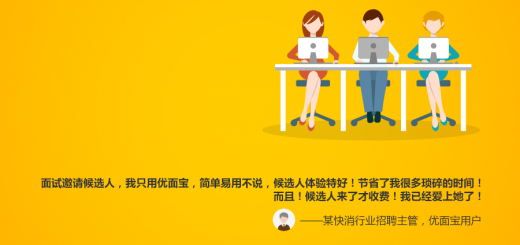 硅谷
硅谷
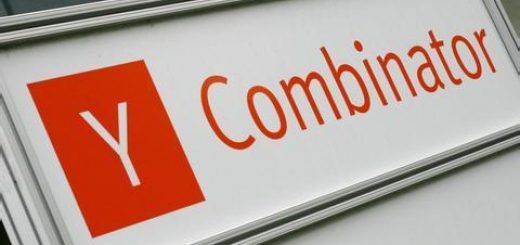 硅谷
硅谷
 硅谷
硅谷
 硅谷
硅谷
 硅谷
硅谷
 硅谷
硅谷
 硅谷
硅谷
 硅谷
硅谷
 硅谷
硅谷

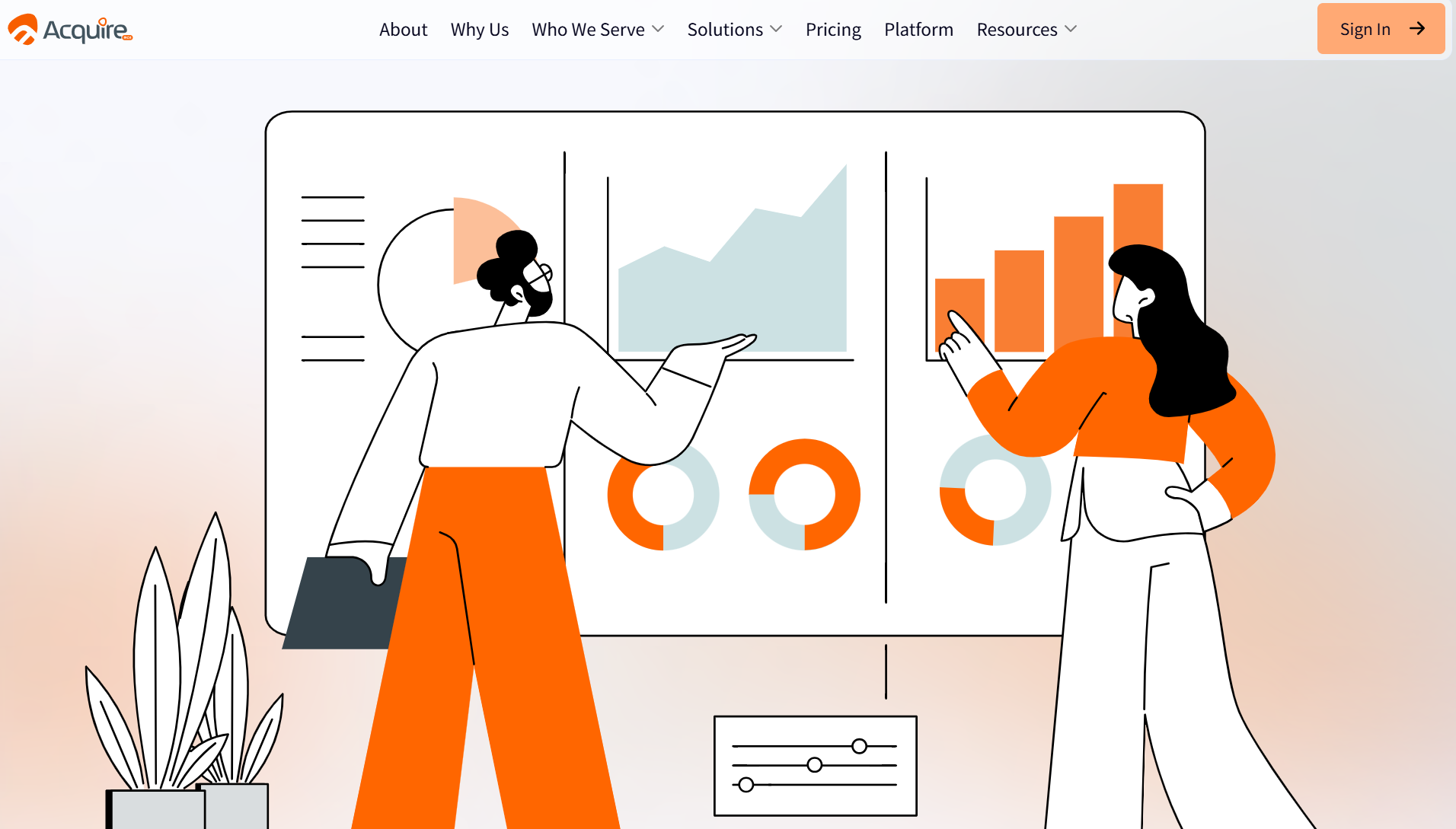

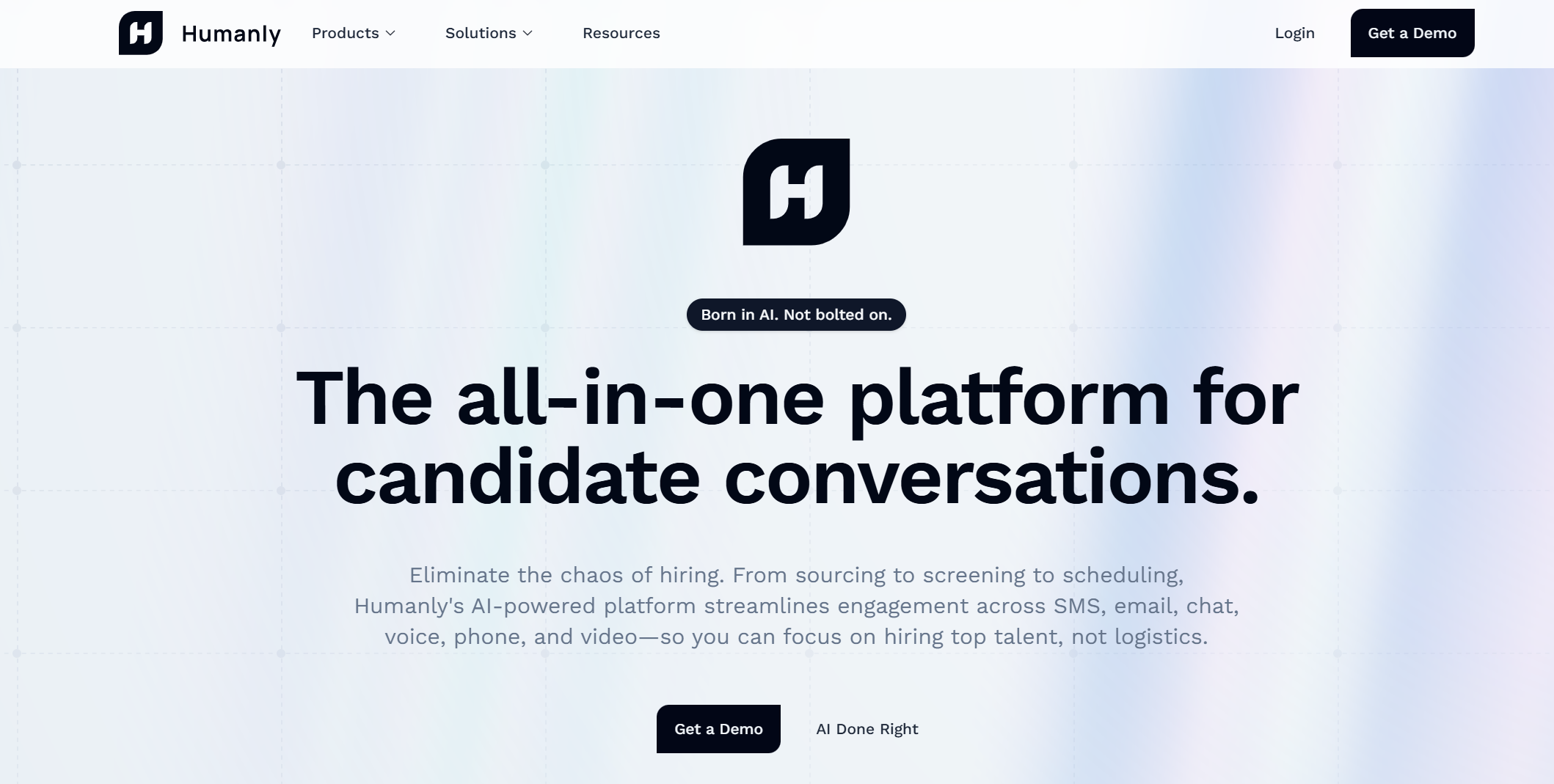

 扫一扫 加微信
hrtechchina
扫一扫 加微信
hrtechchina

